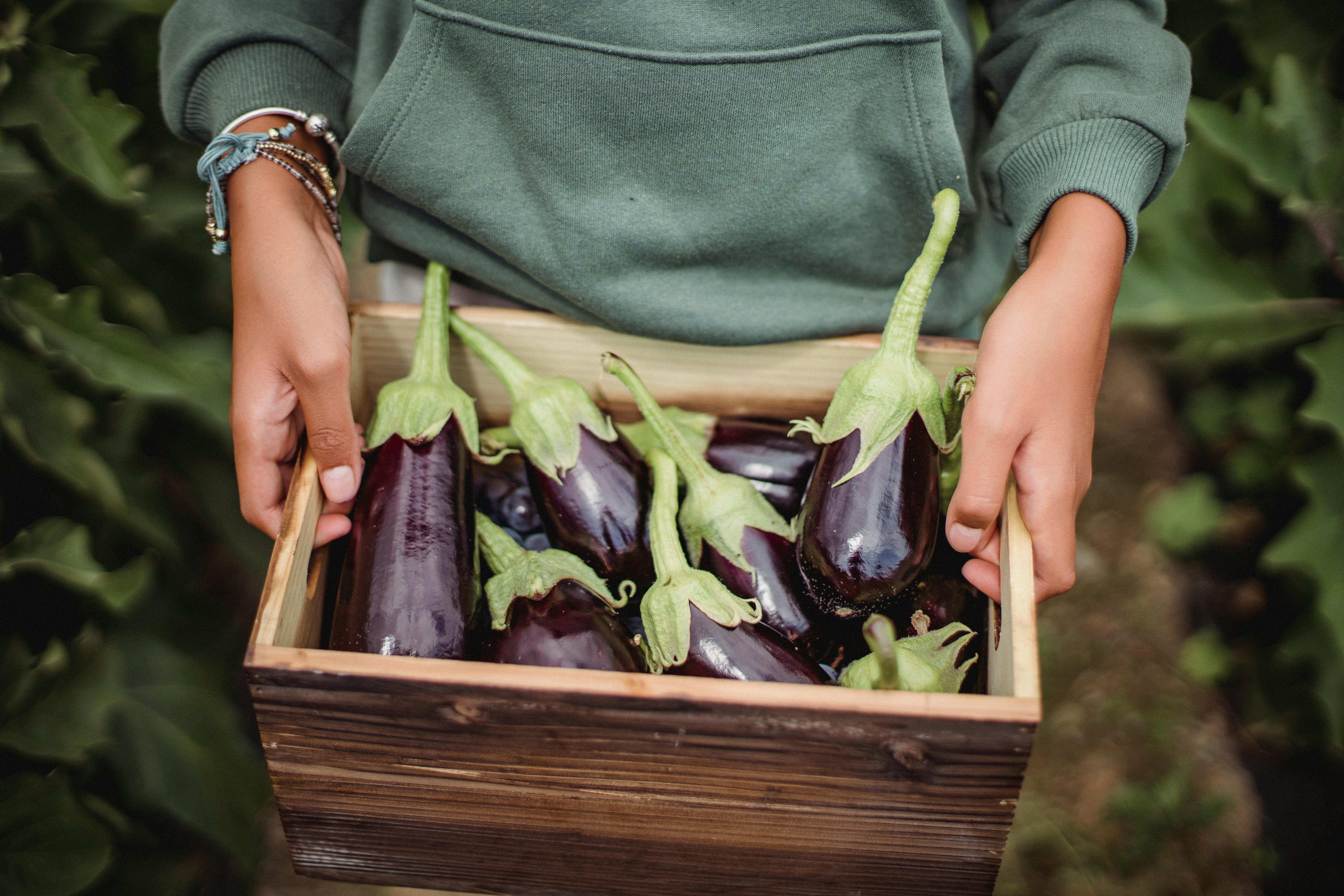The Worst Plants To Companion Plant With Eggplant
Companion planting with eggplant is a great way to improve your garden’s productivity and help your plants thrive. However, there are certain plants that should not be planted near eggplants. These plants can become pests or create an unpleasant environment for your eggplants.
Some of the worst plants to companion plant with eggplant are tomatoes, peppers, potatoes, cabbage, and spinach. Tomatoes and peppers can be especially problematic as they are both members of the nightshade family, which is known to produce toxins that can affect the growth of other vegetables. Potatoes are prone to diseases that can spread easily to other vegetables in the garden, including eggplants.
Cabbage and spinach also do not make good companion plants for eggplant as they tend to attract insects that can damage or eat the leaves of other vegetables. Additionally, both cabbage and spinach require a lot of nitrogen from the soil which may cause a nutrient deficiency in other vegetables nearby.
It’s important to do some research before choosing companion plants for your eggplants so you don’t end up with an unpleasant garden environment or damage your vegetables. The best way to make sure you have successful companion planting is to choose complementary plants that have similar needs in terms of soil, sunlight, and water requirements.
Unfavorable Plants To Have In The Same Garden As Eggplant
Eggplant plants are sensitive to certain types of weeds and other plants, and should not be grown in the same garden as some of them. These include tomatoes, potatoes, peppers, and other members of the nightshade family. These plants have similar nutrient requirements and can compete with eggplant for resources. In addition, they can also spread diseases that can affect eggplants.
Weeds are also problematic for eggplant gardens. Annual broadleaf weeds such as lambsquarters and pigweed can quickly take over a garden if they are not kept in check. Perennial weeds such as dandelions also present problems for eggplant gardens because their extensive root systems make it difficult to remove them completely.
Grasses present another issue for eggplant growers. Grasses have a shallow root system that allows them to quickly outcompete other plants for resources. Weeds such as crabgrass or quackgrass are particularly problematic because their long roots make them difficult to remove completely from the garden.
Finally, some types of vines can be a problem in an eggplant garden. Fast-growing vines like morning glories can climb up the plants and shade them out, reducing yields. Vines like English ivy or Virginia creeper can also spread quickly through a garden, crowding out other plants and making it difficult to manage.
Companions To Avoid When Growing Eggplants
When it comes to eggplants, there are certain plants that can be a hindrance when grown together. As such, it is important to know which plants to avoid when growing eggplants. These companions can be either beneficial or detrimental to the growth and health of your eggplant crop. Here are some of the companions to avoid when growing eggplants:
Tomatoes: Tomatoes and eggplants are both members of the Solanaceae family, so they should not be grown together. This is because both tomatoes and eggplants are susceptible to the same diseases, making them more prone to disease if grown together.
Potatoes: Potatoes should also be avoided when growing eggplants as they can be a host for several diseases that can affect the growth and health of your eggplant crop.
Beans: Beans should also be avoided when growing eggplants as they can compete with each other for resources like water and nutrients.
Garlic: Garlic has a strong odor that can repel beneficial insects like bees which are needed for pollination, thus reducing the amount of pollen available for pollination which will result in fewer fruits produced by your eggplant crop.
Onions: Onions should also be avoided when growing eggplants as they can attract pests that may feed on the foliage or fruits of your plants.
It is important to keep these plants away from your eggplant crop in order to ensure healthy growth and productivity of your crop. By avoiding these companions you will ensure that you get the most from your harvest of delicious eggplant fruits!

Negative Interactions Between Eggplant and Other Plants
Eggplant is a popular vegetable crop, but it can have negative interactions with other plants. Eggplant is susceptible to several diseases that can be spread to other plants, including blight, verticillium wilt, and root-knot nematodes. In addition, eggplant can act as a host for certain insect pests, such as the Colorado potato beetle and the flea beetle, which can spread to other nearby plants. When planting eggplant near other crops, it is important to take these potential negative interactions into account.
One way to minimize these negative interactions is to rotate the location of your eggplant crop each season. This will reduce the chances of pests and diseases from building up in the soil around your plants. It’s also important to avoid planting eggplants near nightshade family members such as tomatoes or potatoes as this increases the risk of disease transmission. Finally, make sure to inspect your plants regularly for signs of pest infestations or disease so that you can take action before it spreads too far.
Preventing Competition between Eggplants and Other Plants
Preventing competition between eggplants and other plants is an important part of successful crop management. Competition between different plant species can be detrimental to both, reducing yields and causing a reduction in overall crop quality. Here are some ways to prevent competition between eggplants and other plants:
1. Crop Rotation: Crop rotation is an effective method for preventing competition between different plants. By rotating crops in a field, the soil is not overworked or depleted of vital nutrients. This helps ensure that all plants receive the same amount of sunlight, water and nutrients, reducing competition for resources.
2. Plant Density: Planting a variety of crops at different densities can help reduce competition between them. If two different species are planted close together, they could compete for resources such as sunlight, water and nutrients. Planting them further apart will reduce this competition significantly.
3. Plant Selection: Choosing plant varieties that have different growth habits can also help reduce competition between them. For example, planting tall varieties next to short ones allows light to penetrate further into the canopy and reach more of the plant’s leaves, thus reducing competition for light resources.
4. Mulching: Applying mulch around a field can help prevent weeds from competing with other plants for nutrients and water in the soil. Mulch also helps keep the soil moist which reduces the need for frequent watering which would otherwise cause additional competition among the different species of crops planted in a field.
5. Fertilization: Applying fertilizer to a field can provide essential nutrients to all plants growing there which reduces their need to compete for resources such as nitrogen or phosphorus found naturally in the soil. This ensures that each plant receives an adequate amount of vital nutrients it needs to grow healthy and strong with minimal competition from other plants growing nearby.
By following these tips, you can effectively prevent competition between eggplants and other plants in your garden or farm fields with ease!
Avoid Growing These Plants Alongside Your Eggplants
Eggplants are a popular vegetable and, as such, should be grown carefully in order to maximize their yield. To ensure that your eggplants have the best chance for success, it is important to be aware of which plants you should avoid growing alongside them. Some of these plants can have a negative effect on the growth and yield of your eggplants, and should therefore be avoided. Examples include potatoes, peppers, tomatoes, fennel, garlic, onions, and squash.
Potatoes may contain pests or diseases that can spread to your eggplants. Peppers can also negatively affect the growth of your eggplant crop as they share similar nutrients with eggplants. Tomatoes are hosts to many different pests and diseases that can easily spread to other plants in the garden. Fennel can also impact the growth of your eggplant crop due to its strong aroma and flavor. Garlic is considered an invasive plant in many regions and can crowd out other plants nearby including your eggplants. Onions have strong odors that can inhibit the growth of other plants in the garden such as your eggplants; while squash vines are known to spread quickly across a garden bed and take up too much space for other crops like your eggplants.
In order to ensure that you get the most from your eggplant crop it is best to avoid growing any of these plants alongside them in the same area in order to prevent any potential issues from arising. By avoiding these potential problems you will be able to maximize the yield from your eggplant crop and enjoy a plentiful harvest each season!

Conclusion
Eggplant is a vegetable that can be grown in a variety of climates and soils, and is relatively easy to maintain. However, it is important to know what not to plant with eggplants in order to ensure successful growth and protect the health of the plant. Tomatoes, peppers, beans, and okra are some of the vegetables that should not be planted near eggplants. These plants can compete for nutrients, spread disease, or attract pests that may harm the eggplant crop. Additionally, it is important to rotate crops appropriately to avoid soil-borne diseases and nutrient depletion. Proper care should be taken when planting eggplants in order to maximize their productivity.
Overall, understanding what not to plant with eggplants is crucial for successful gardeners. Planting the wrong vegetables near eggplants can result in stunted growth and decreased fruit yields. It is best practice to research companion planting before attempting any type of cultivation to ensure optimal results.

